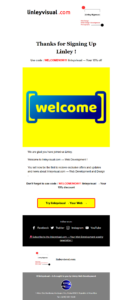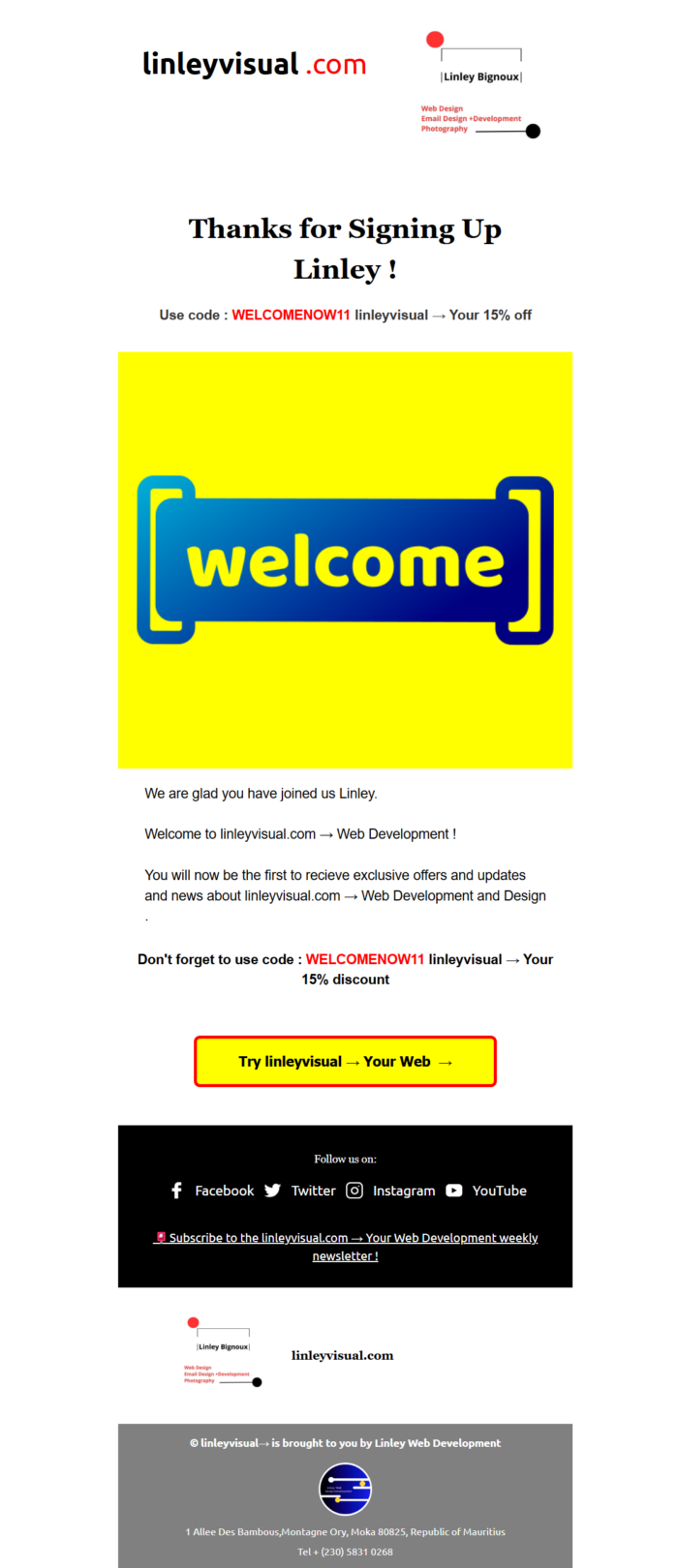
Welcome Email Breakdown: Design & Development Insights
A well-crafted welcome email is essential for engaging new subscribers and setting expectations. Let’s analyze the LinleyVisual.com welcome email from a development perspective, covering design, structure, and best practices.
1. Header & Branding
- Logo Placement: The logo is prominently positioned at the top, ensuring brand recognition.
- Consistent Branding: The email maintains a clean and professional look, using brand colors and typography that align with LinleyVisual.com.
- Header Alignment: The alignment ensures a polished appearance across different email clients.
2. Typography & Readability
- Font Choices: The email utilizes a mix of bold, black serif and sans-serif fonts for emphasis.
- Emphasis on Key Information:
- The discount code is in red, drawing attention.
- Bold text is used for important sections, enhancing readability.
- Spacing & Line Height: Well-spaced text improves legibility on both desktop and mobile devices.
3. CTA (Call-to-Action) Buttons
- Primary CTA: The button “Try linleyvisual → Your Web →” is highlighted in yellow with a red border, making it stand out.
- Clear Direction: The CTA is well-placed and directs users to take action.
- Clickable Elements:
- Buttons use a high-contrast color scheme.
- The hyperlink format is clear, ensuring easy navigation.
4. Visuals & Accessibility
- Hero Image:
- The “WELCOME” banner uses contrasting colors (blue/yellow) to grab attention.
- The image should have alt text for better accessibility in email clients that block images by default.
- Color Contrast: Ensures readability and inclusivity for visually impaired users.
5. Content Structure & Email Flow
- Personalization: Uses the recipient’s name, making the message more engaging.
- Concise Messaging:
- Introduction → Discount Offer → Benefits → Call to Action.
- This structure keeps readers engaged without overwhelming them.
- Grammar Check: “Recieve” should be corrected to “Receive” to maintain professionalism.
6. Footer & Social Proof
- Social Media Links:
- Icons for Facebook, Twitter, Instagram, and YouTube encourage further engagement.
- Newsletter Subscription: A link invites users to stay updated.
- Company Details:
- Includes physical address and contact info for transparency and trust.
7. Development Best Practices (MJML/HTML Considerations)
- Mobile Responsiveness:
- The email should use MJML or fluid HTML tables to ensure optimal rendering across devices.
- Media queries should be in place to adjust padding and button sizes for smaller screens.
- Alt Text for Images: Ensures content is accessible if images don’t load.
- Fallback Fonts: If a custom font isn’t supported, a web-safe alternative should be set
